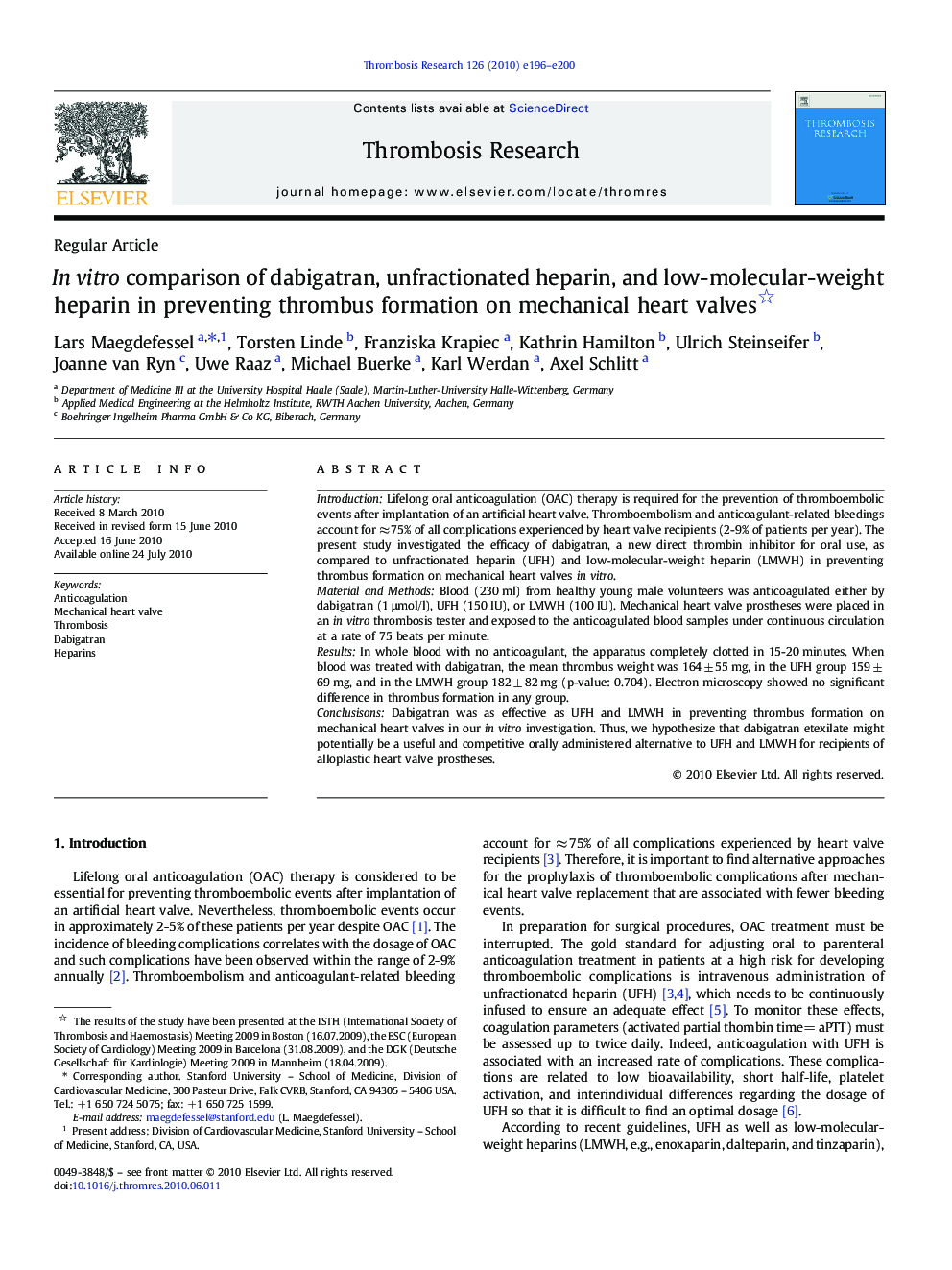| Article ID | Journal | Published Year | Pages | File Type |
|---|---|---|---|---|
| 3029316 | Thrombosis Research | 2010 | 5 Pages |
IntroductionLifelong oral anticoagulation (OAC) therapy is required for the prevention of thromboembolic events after implantation of an artificial heart valve. Thromboembolism and anticoagulant-related bleedings account for ≈ 75% of all complications experienced by heart valve recipients (2-9% of patients per year). The present study investigated the efficacy of dabigatran, a new direct thrombin inhibitor for oral use, as compared to unfractionated heparin (UFH) and low-molecular-weight heparin (LMWH) in preventing thrombus formation on mechanical heart valves in vitro.Material and MethodsBlood (230 ml) from healthy young male volunteers was anticoagulated either by dabigatran (1 μmol/l), UFH (150 IU), or LMWH (100 IU). Mechanical heart valve prostheses were placed in an in vitro thrombosis tester and exposed to the anticoagulated blood samples under continuous circulation at a rate of 75 beats per minute.ResultsIn whole blood with no anticoagulant, the apparatus completely clotted in 15-20 minutes. When blood was treated with dabigatran, the mean thrombus weight was 164 ± 55 mg, in the UFH group 159 ± 69 mg, and in the LMWH group 182 ± 82 mg (p-value: 0.704). Electron microscopy showed no significant difference in thrombus formation in any group.ConclusisonsDabigatran was as effective as UFH and LMWH in preventing thrombus formation on mechanical heart valves in our in vitro investigation. Thus, we hypothesize that dabigatran etexilate might potentially be a useful and competitive orally administered alternative to UFH and LMWH for recipients of alloplastic heart valve prostheses.
